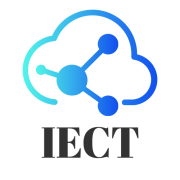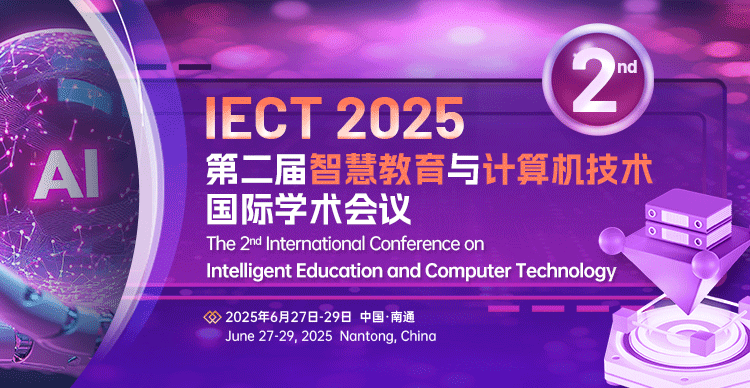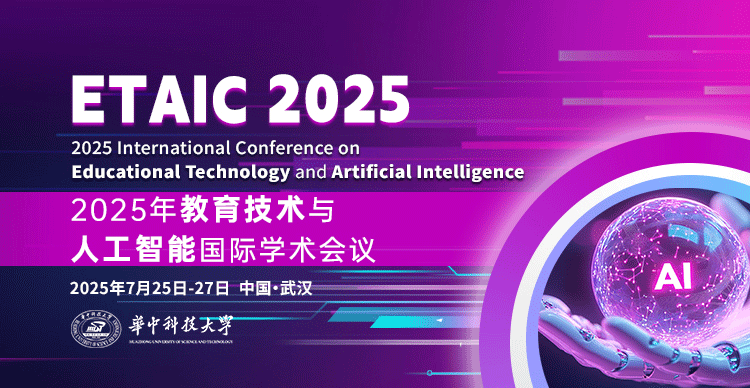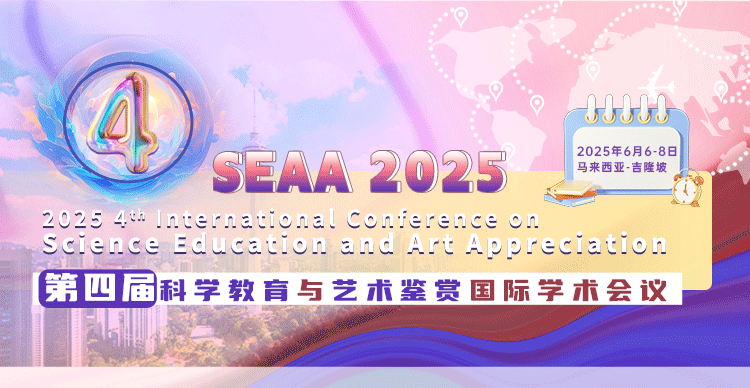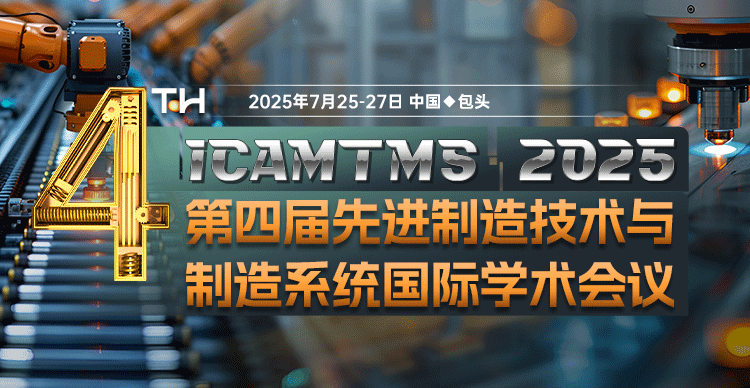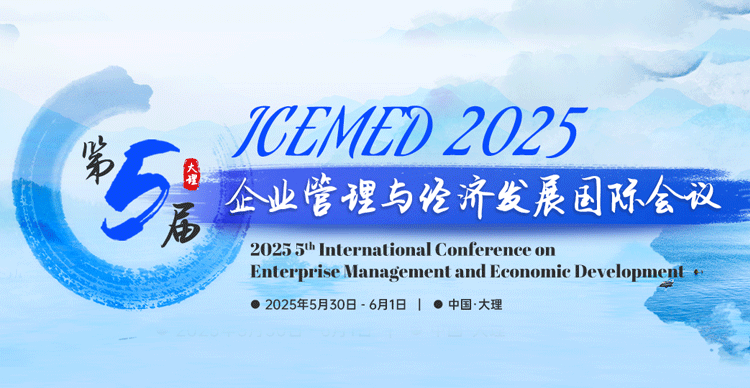第二届智慧教育与计算机技术国际学术会议
The 2nd International Conference on Intelligent Education and Computer Technology
会议简介
随着近些年计算机科学的发展,不仅改变了我们的生活,也给教育领域带来变革。智慧教育的发展更要依赖于产品和技术的支持。在教育现代化中,新的教育基础设施包括现代化教学场所、规模化网络覆盖、大数据系统和开放性教育资源等软硬件条件,这是教育信息化变革的前提。
由南通大学主办的第二届智慧教育与计算机技术国际学术会议(IECT 2025)即将于2025年6月27日-29日在江苏·南通隆重召开。本会议涵盖了智慧教育、教育信息化、智能学习环境、数据挖掘等多个主题,通过技术创新满足各级教育的技术需求,加速推进智慧教育的发展转型,打造真正能落地的智慧教育新生态。会议旨在汇集该领域的研究人员、学者和实践者,探讨最新的研究成果和技术创新。
诚邀国内外高校、科研机构的专家、学者、商界人士及其他相关人士参会!
组织单位
【主办单位】南通大学
【协办单位】湖南师范大学
主讲嘉宾
Keynote 1: 刘帅教授 湖南师范大学 EAI Fellow, 中国
刘帅博士,博士生导师。主要研究方向为智能教育技术、教育信息处理等。刘帅教授主持和参与完成多项国家科社基金,在Inf Fus、Inf Sci、IEEE TFS/TMM/TITS/Re、IEEE IOTJ等期刊发表高水平论文80余篇,总被引6000余次。入选2021-2023年世界前2%科学家名单(斯坦福大学),论文被评为2021年中国100篇最具影响力国际期刊论文(中国科学技术信息研究所,2022)等。刘帅教授是EAI Fellow,中国计算机联合会杰出会员,中国电子学会高级会员,CCF教育专委会委员,湖南省计算机学会/人工智能学会理事,湖南省人工智能学会教育工作委员会副主任。
Keynote 2: Rustam Shadiev教授 浙江大学教育学院,IEEE Senior Member
Rustam Shadiev教授于2012年获得国立中央大学网络学习技术博士学位。他目前是中国杭州浙江大学教育学院的终身教授,专门研究语言学习和跨文化教育的先进学习技术。Shadiev教授是英国计算机学会会员,也是电气和电子工程师学会(IEEE)的高级会员。2019年被授予江苏省杰出教授称号。此外,从2020年到2023年,他连续四年被Elsevier、Scopus和Shanghai Rating评为中国教育领域被引用最多的研究者之一。
研究领域:先进的学习技术、语音到文本识别技术、计算机辅助翻译、多媒体学习系统、多点触摸技术、跨文化教育与语言学习、移动辅助学习、开放和远程学习等。
Keynote 3: 钱小龙教授 南通大学,中国
钱小龙,男,教授,江苏海门人,南京大学教育学博士、公共管理博士后,美国加州大学欧文分校(UCI)高级访问学者。
研究方向在线教育、教育数字化、教学系统设计、国际与比较教育
Keynote 4: 李祖祥教授 南通大学,中国
李祖祥,男,湖南新宁人,教育学博士,教授,邮箱:lizuxiang@ntu.edu.cn。南通大学课程教材研究所所长,硕士生导师。1998年获教育学硕士学位,2007年获教育学博士学位,2011年在澳大利亚拉筹伯大学访学3个月。长期研究中小学课程与教材,近年来关注并研究情境教育,先后主持全国教育科学规划项目、教育部人文社会科学一般项目、江苏省高校哲社重大项目、北京市2011协同创新平台项目等课题,在《中国教育学刊》《教育发展研究》等期刊发表学术论文60余篇,出版专著4部、教材1部。获第五届全国教育科学研究优秀成果一等奖、第八届高等学校科学研究优秀成果二等奖(人文社会科学)、2018年度国家级高等学校教学成果二等奖等奖项。
Keynote 5: 吴东照副教授 南通大学,中国
吴东照,男,江苏常州人,教育科学学院副院长,博士,副教授,硕士生导师,江苏高校人文社会科学研究基地--江苏先进典型研究中心、南通大学教育领导与管理研究所、南通大学职业教育与区域发展研究所研究员,兼任江苏省教育评估院师范专业认证专家、江苏省审核式评估专家,主持国家社科基金教育学青年项目1项,江苏省研究生教学改革重点课题、江苏省教育科学规划等省部级项目4项,在《复旦教育论坛》《中国教育学刊》《教育发展研究》等高水平期刊发表学术论文18篇,撰写的2份决策咨询报告被教育部社科司采纳,获得国家教学成果奖(高等教育类)二等奖1项,江苏教育研究研究成果三等奖1项,第十三届江苏省高校哲学社会科学研究成果三等奖1项,南通市哲学社会科学优秀成果一等奖1项,三等奖1项。
Keynote 6: 方旭副教授 南通大学,中国
方旭,南通大学教育科学学院副教授,硕士生导师,从事教育数字化、人工智能教育等方面的研究工作。在国内外刊物上发表学术论文60余篇,其中包括以第一作者发表SSCI来源期刊1篇、CSSCI来源期刊15篇,在《科学出版社》、《人民出版社》、《中国社会科学出版社》、《吉林大学出版社》等出版学术专著6部。已主持国家社科基金一般项目、国家教育考试科研规划课题重点课题、教育部在线教育基金、江苏省社科基金,河南省社科基金、河南省重点研发与推广计划(软科学课题)、甘肃省社科基金等二十余项。获得河南省教育科学规划优秀科研成果奖一等奖、甘肃高校科研优秀成果二等奖等各类奖项11项。现为《开放教育研究》、《现代远程教育研究》、《远程教育杂志》、《Current Psychology》等多本CSSCI与SSCI来源期刊审稿人。
征稿主题 (包含但不限于)
议题1:学习分析和教育数据挖掘
- 基于数据的学习理论
- 学习与教学过程挖掘
- 情绪学习分析
- 学习者投入与参与量化与分析
- 学习预警与学习干预
- 学习分析工具的设计和采用
- 适应性学习决策支持与反馈
- 多元多模态学习评估
- 数据驱动的性能预测
- 互动学习环境中的语篇分析
- 协作学习分析
- 社会和认知网络分析
- 学习分析中的伦理问题
议题2:科技促进的学习与教学
- 面向科学教育的交互式虚拟现实(VR)仿真设计
- 将游戏化元素融入线上/线下课程设计
- 利用学习分析为教学设计决策提供信息
- 学习中的视频会议
- 社交媒体在教学中的整合
- 数字教学资源和工具
- STEM教育中概念教学的交互式模拟
- 自动评分系统:好处、挑战和最佳实践
- 个性化反馈以支持学生学习
- 科技强化课堂管理策略
- 数字考勤跟踪和学生进度监控
- 教学技术整合的创新
- 交互式白板和多媒体演示
- 翻转课堂模式
- 在STEM教学中整合机器人与编码
- 识别有风险的学生和定制支持干预
- 循证教学决策
议题3:人工智能增强特殊教育
- 基于人工智能的特殊儿童辅助技术
- ASD儿童人工智能干预技术
- 特殊儿童的智能行为感知
- ASD儿童的ai辅助评估
- 精神障碍的脑源重建
- 特殊儿童脑电图分析
- 自闭症儿童的智能筛查
- 特殊儿童个性化学习技巧
- 特殊教育的人机交互技术
- 特殊儿童学生支持技术
- 特殊教育智能辅导系统
议题4:人工智能在教育中的应用与创新
- 个人和团体学习的建模和表征
- 人工智能和学习的未来
- 可穿戴和不受干扰的学习传感技术
- 情感计算在教育中的应用
- 生成式人工智能在教育中的应用
- 支持人工智能的个性化学习
- 学习内容推荐
- 智能学习环境
- 人类-人工智能混合学习系统
- 智能代理(助手)
- 智能辅导系统
- 教育过程可视化和仪表板
- 人工智能驱动的学习/课程转型
- 教育中的人工智能伦理、隐私和安全挑战
出版信息
所有的投稿都必须经过2-3位组委会专家审稿,经过严格的审稿之后,提交出版社出版,最终所有录用的论文提交EI, Scopus检索。
参会方式
主讲嘉宾:申请主题演讲,由组委会审核。
口头报告:论文一经录用即可注册参会发表口头报告,时间为15分钟,含问答环节。无投稿亦可报名申请。
海报展示:论文一经录用即可注册参会进行海报展示,海报尺寸为A1。无投稿亦可报名申请。
听众参会:无需提交稿件,直接注册听众参会即可
Welcome to IECT 2025
The 2nd International Conference on Intelligent Education and Computer Technology will be held on June 29-30 2025 in Nantong China.
IECT 2025 is to bring together innovative academics and industrial experts in the field of Intelligent Education and Computer Technology to a common forum.
With the development of computer science in recent years our lives have been transformed and significant changes have also been brought to the field of education. The development of intelligent education increasingly relies on the support of products and technology. In the modernization of education new educational infrastructure includes modernized teaching facilities large-scale network coverage big data systems and open educational resources. These hardware and software conditions are prerequisites for the transformation towards educational informatization.
The conference aims to bring together researchers scholars and practitioners in the field to discuss the latest research findings and technological innovations. The sessions will cover topics such as intelligent education educational informatization intelligent learning environments and data mining. The conference seeks to meet the technological needs of education at all levels through technological innovation accelerate the development and transformation of intelligent education and create a truly sustainable new ecosystem for intelligent education.
Highlights of IECT 2025 will include:
●Speeches and presentations by respected researchers in the fields of Intelligent Education and Computer Technology
● Panel discussions
● Presentations of accepted academic and practitioner research papers and a poster paper session
Important Dates
Full Paper Submission Date: Juanary 20 2025
Registration Deadline: June 22 2025
Final Paper Submission Date: June 15 2025
Conference Dates: June 27-29 2025
Call For Papers
The topics of interest for submission include but are not limited to:
Track 1: Learning Analytics and Educational Data Mining
- Data-Informed Learning Theories
- Learning and Teaching Processing Mining
- Emotional Learning Analysis
- Learner Engagement and Involvement Quantification and Analysis
- Learning Early Warning and Learning Intervention
- Design and Adoption of Learning Analytics Tools
- Adaptive Learning Decision Support and Feedback
- Multivariate and Multimodal Learning Assessment
- Data-Driven Performance Prediction
- Discourse analysis in Interactive Learning Environments
- Collaborative Learning Analytics
- Social and Epistemic Network Analysis
- Ethical Issues in Learning Analytics
Track 2: Technology-Enhanced Learning and Instruction
- Designing Interactive Virtual Reality (VR) Simulations for Science Education
- Integrating Gamification Elements into Online/Offline Course Design
- Utilizing Learning Analytics to Inform Instructional Design Decisions
- Video Conferencing in Learning
- Social Media Integration in Instruction
- Digital Resources and Tools for Instruction
- Interactive Simulations for Concept Teaching in STEM Education
- Automated Grading Systems: Benefits Challenges and Best Practices
- Personalizing Feedback to Support Student Learning
- Technology-Enhanced Classroom Management Strategies
- Digital Attendance Tracking and Student Progress Monitoring
- Innovations in Technology Integration for Instruction
- Interactive Whiteboards and Multimedia Presentations
- Flipped Classroom Models
- Integrating Robotics and Coding in STEM Instruction
- Identifying At-Risk Students and Tailoring Support Interventions
- Evidence-ba
sed Instructional Decision Making
Track 3: Artificial Intelligence Enhanced Special Education
- AI-ba
sed Assistive Technology for Special Children - AI-Powered Intervention Technology for Children with ASD
- Intelligent Behavior Sensing for Special Children
- AI-Assisted Assessment of Children with ASD
- Brain Source Reconstruction for Mental Disorders
- EEG Analysis for Special Children
- Intelligent Screening for Children with ASD
- Personalized Learning Techniques for Special Children
- Human-Computer Interaction Technology for Special Education
- Student Support Technology for Special Children
- Intelligent Tutoring Systems for Special Education
Track 4: Artificial Intelligence Applications and Innovations in
- Education
- Modelling and Representation of Individual and Group Learning
- AI and the Future of Learning
- Wearable and Undisturbed Learning Sensing Technologies
- Affective Computing in Education
- Generative AI in Education
- AI-enabled Personalization Learning
- Learning Content Recommendation
- Intelligent Learning Environments
- Human-AI Hybrid Systems for Learning
- Intelligent Agent (Assistants)
- Intelligent Tutoring Systems
- Educational Process Visualization and Dashboard
- AI-driven Transformation of Learning/Curriculum
- AI Ethical Privacy and Security Challenges in Education
Publication
All papersboth invited and contributed the accepted papers will be published for inclusion into Conference proceedings with meeting scope and quality requirements and also submitted to EI Compendex Scopus for indexing. All conference proceedings paper can not be less than 8 pages.
Note: All submitted articles should report original research results experimental or theoretical not previously published or under consideration for publication elsewhere. Articles submitted to the conference should meet these criteria. We firmly believe that ethical conduct is the most essential virtue of any academics. Hence any act of plagiarism or other misconduct is totally unacceptable and cannot be tolerated.

